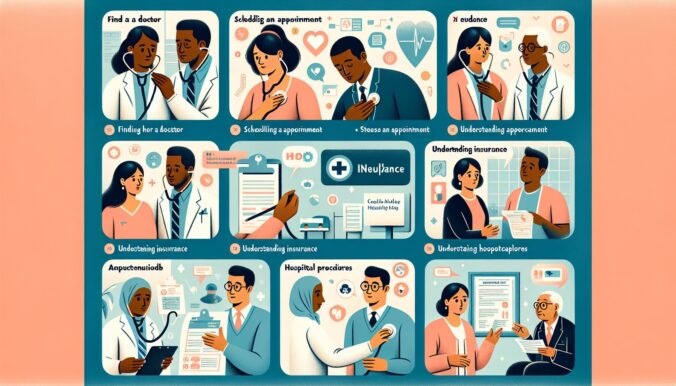When it comes to our health, it’s important to know where to turn for medical help. Whether you’re dealing with a sudden illness, a chronic condition, or simply in need of a check-up, having access to the right resources can make a world of difference. In this guide, we will walk you through the steps you can take to ensure you get the medical help you need when you need it.
Seeking Medical Help
If you are experiencing a medical emergency, such as chest pain, difficulty breathing, severe injury, or any other life-threatening situation, dial 911 immediately. Emergency services are equipped to handle urgent medical situations and can provide the help you need quickly.
For non-emergency medical concerns, your first step should be to contact your primary care physician. They have a good understanding of your medical history and are the best equipped to provide you with personalized care. If you don’t have a primary care physician, you can visit an urgent care clinic or walk-in clinic for prompt medical attention.
Utilizing Telemedicine
Telemedicine has become increasingly popular in recent years, allowing patients to receive medical care from the comfort of their own homes. Through telemedicine platforms, you can connect with healthcare providers via video or phone call to discuss your symptoms and receive a diagnosis or treatment plan.
Telemedicine is especially beneficial for those with limited mobility, busy schedules, or living in remote areas without easy access to healthcare facilities. It’s a convenient option for non-emergency medical needs and can save you time and money compared to in-person visits.
Navigating Specialist Care
If your primary care physician recommends seeing a specialist for further evaluation or treatment, they can provide you with a referral. Specialists have in-depth knowledge and expertise in specific areas of medicine and can offer specialized care for complex medical conditions.
When seeking specialist care, be sure to verify that the provider is in-network with your insurance plan to avoid unexpected out-of-pocket costs. You can also ask for recommendations from your primary care physician or trusted friends and family members to find a specialist who suits your needs.
Conclusion
Getting the medical help you need doesn’t have to be a daunting task. By following these steps and utilizing the resources available to you, you can ensure that you receive the care you deserve. Remember to prioritize your health and never hesitate to seek medical help when you need it. Your well-being is worth it.
